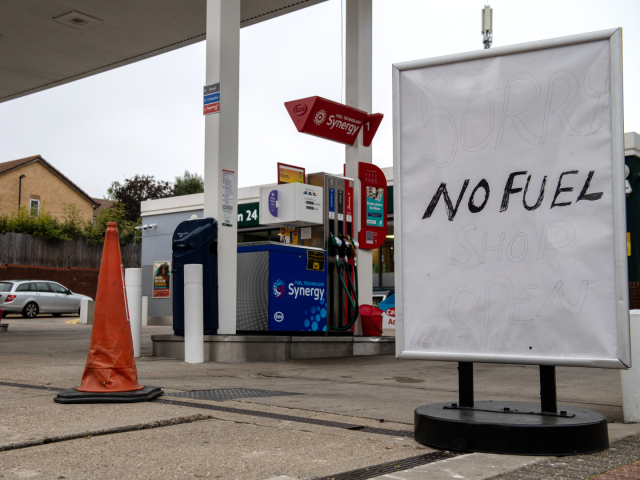The far-left green agenda goal of Prime Minister Boris Johnson’s government to reduce carbon emissions to “net zero” by 2050 will result in energy rationing, Lord David Frost has warned.
The belief that Britain committed the “original sin” of launching the Industrial Revolution and therefore polluting the planet has resulted in its nominally Conservative government pursuing unfeasible green policies that will ultimately result in future rationing of energy, the former top Brexit negotiator predicted.
“Either the net zero target has to evolve, or there must be compulsory demand control and rationing,” Lord Frost wrote in The Telegraph.
The former Brexit negotiator, who resigned from government over differences of opinion with Johnson over coronavirus lockdowns and the green agenda, warned that due to the limitations of battery storage capabilities, it will be difficult for people and businesses to be able to afford the transition to so-called renewable energy sources such as wind or solar.
“Battery technology is not good enough, so you need to run a parallel gas grid, and less efficiently than gas on its own because you have to turn it on and off as the wind blows. Obviously that is going to be more expensive, and it gets more so the more renewables you have. That is why it is simply not true to say that “gas is expensive and wind is free”, as so many do,” Frost explained.
Boris Johnson has lashed out against “prejudice” against his leftist green agenda among members of his own Conservative Party, and shot down proposals to lift of taxes on energy bills. https://t.co/LcOYCSftcf
— Breitbart News (@BreitbartNews) April 23, 2022
While he noted that the world could “get lucky” with the advent of nuclear fusion power, which has yet to materialise, Frost countered by admitting that the government has not shown enough interest in investing fully into traditional nuclear power anyway.
Alternatively, the Brexiteer said that the goal of reaching net-zero carbon emissions might be met by crushing demand for energy through efficiency measures such as insulating households, though he noted that the cost would be high: “£25-30 billion every year until 2050 (5-6p on income tax unless people are made to pay themselves).”
Lord Frost concluded: “I don’t like poverty, I don’t like artificial limits on human aspiration and potential, and when you don’t have enough energy you get a lot of both. That’s why we need to change tack now. We need an energy policy that delivers power, at acceptable cost, whenever we need it – because an advanced economy without that will not stay advanced for long.”
The government’s Business and Energy Secretary, Kwasi Kwarteng, is expected to announce a decision on the future of fracking in Britain amid the ongoing energy crisis across Europe.
Indeed, the government’s own estimates have said that the natural gas deposits at Bowland Shale could provide 50 years of energy at current usage.
Nevertheless, Prime Minister Boris Johnson has so far declined to lift the moratorium on fracking, which was imposed over dubious concerns about causing earthquakes, with Kwarteng merely launching a review into whether or not the government might do so.
While the United Kingdom is far less reliant on Russian energy than its European counterparts, fuel and energy prices have still continued to soar.
It is estimated that the price cap on household energy will be lifted again in October to £3,000, which the Bank of England has warned could result in as high as 11 per cent inflation.
Energy Crisis: UK Gas Prices Nearly Four Times Higher than Last Year https://t.co/G4uP2kyCg8
— Breitbart London (@BreitbartLondon) February 1, 2022
Follow Kurt Zindulka on Twitter here @KurtZindulka

COMMENTS
Please let us know if you're having issues with commenting.